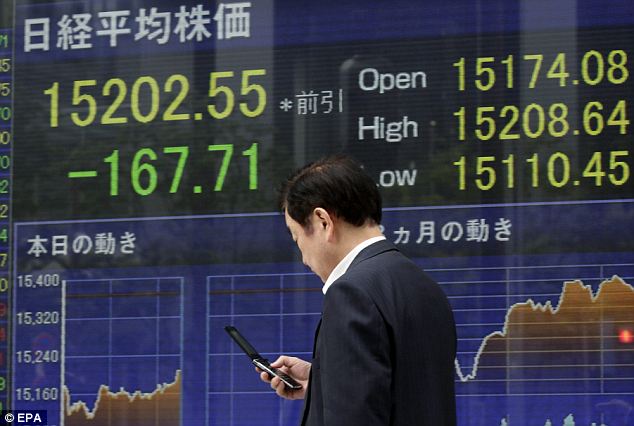
Markets in Asia tracked modestly higher on Thursday after U.S. stocks notched gains in the last session amid improved investor sentiment.
The Nikkei 225 added 0.49 percent in early trade. The Topix subindexes for sea transportation and steel were among the best-performing sectors in the morning, rising 2.05 percent and 2.35 percent, respectively.

Over in Sydney, the S&P/ASX 200 edged higher by 0.6 percent. Materials stocks rose after overnight gains in the metals markets on Russia sanction worries. Mining major Rio Tinto jumped 2.66 percent. BHP advanced 3.04 percent after announcing an 8 percent increase in third-quarter iron ore production, although it also slightly cut fiscal year 2018 guidance for iron ore.
In Seoul, the Kospi hovered just around the flat line, with the benchmark last higher by 0.01 percent.
The move higher in Asia followed the stronger lead from Wall Street, where robust earnings continued to buoy markets. Both the S&P 500 and the Nasdaq composite notched slim gains on Wednesday, although the Dow Jones industrial average slipped, weighed down by a decline in IBM shares.
Some 79 percent of S&P 500 companies that had reported as of Wednesday morning had topped expectations, according to Thomson Reuters I/B/E/S.
Oil prices extended gains after jumping almost 3 percent to their strongest levels since late 2014 in the last session on data that showed a drop in U.S. crude inventories. U.S. West Texas Intermediate crude futures gained 0.41 percent to trade at $68.75 per barrel and Brent crude futures advanced 0.41 percent to $73.78.
The dollar index, which tracks the greenback against a basket of currencies, was steady at 89.616. Against the yen, the dollar extended overnight gains to trade at 107.37 at 8:01 a.m. HK/SIN.
Meanwhile, the British pound was on the back foot after slipping in the last session on the back of March U.K. inflation coming in at a one-year low. The currency last traded at $1.4200 after touching a post-Brexit high earlier this week.
While cooling inflation pressure in March “will not be enough to dissuade the Bank of England from raising rates at the May meeting,” a continued fall will “question the necessity for further rate increases in November,” Elias Haddad, senior currency strategist at Commonwealth Bank of Australia, said in a note.

